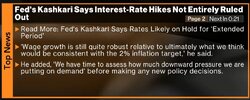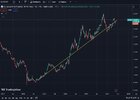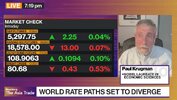over9k
So I didn't tell my wife, but I...
- Joined
- 12 June 2020
- Posts
- 5,291
- Reactions
- 7,510
Fixed income now pricing just one rate cut this year. It used to be perhaps 3, then 2, now we're at 1.
How long before it's 0?
How long before it's 0?













